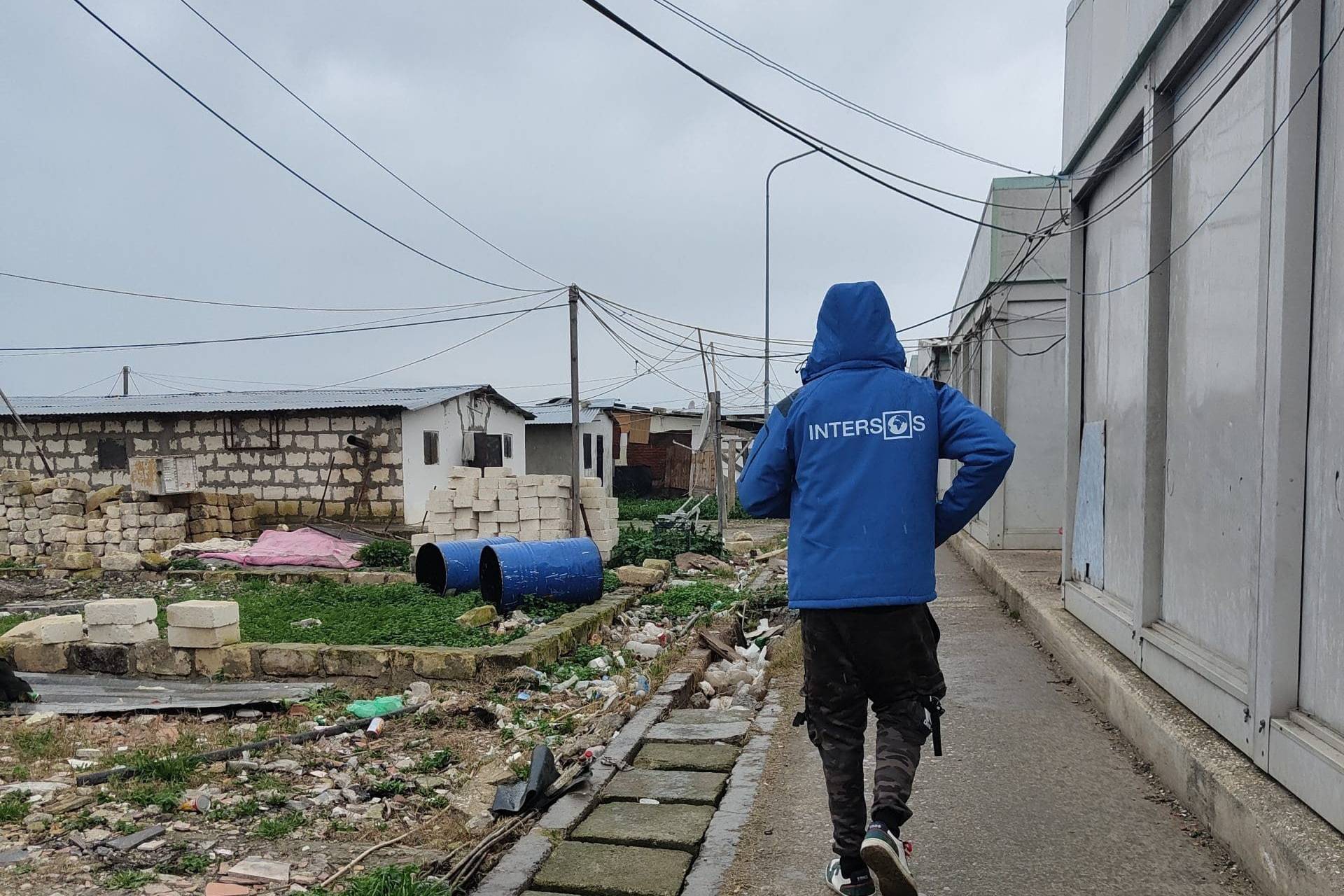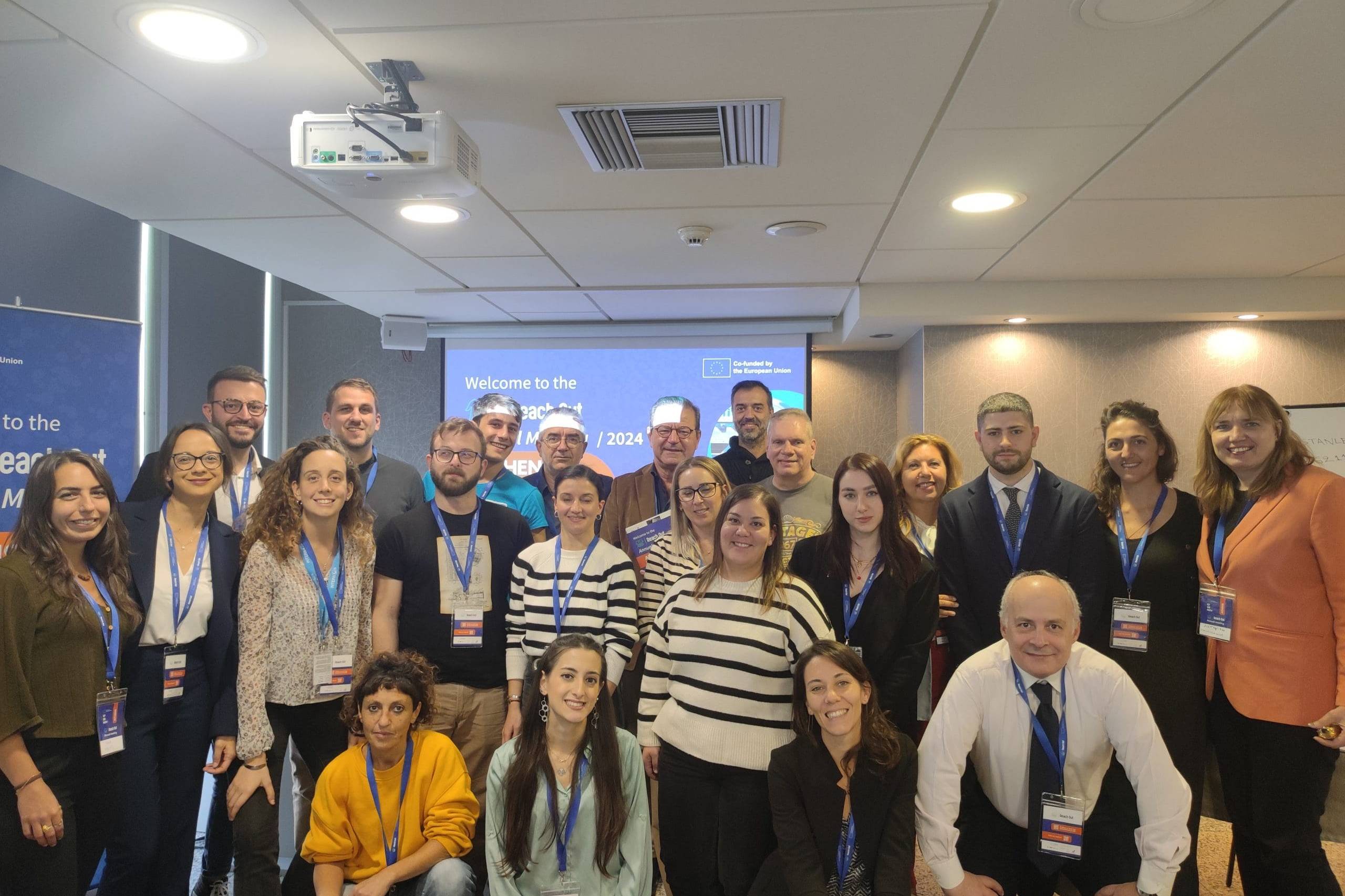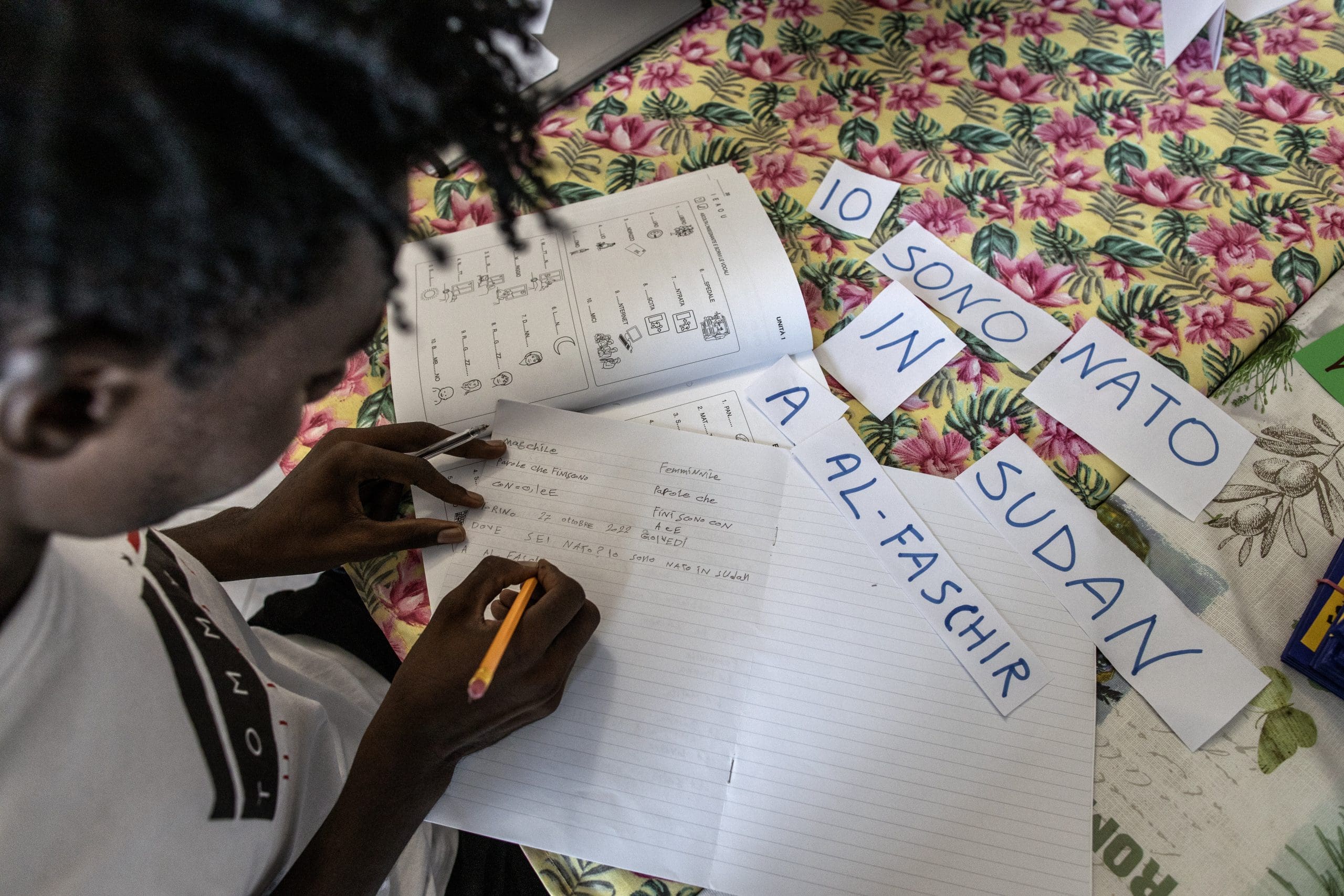Italy

2011
First intervention
4.800
People reached
35
Projects
2.685.520€
Budget spent
INTERSOS in Italy
In 2023, 157.000 people arrived in Italy via the Central Mediterranean route, an increase of 50% compared to the previous year. The main country of origin is Guinea, followed by Tunisia, Ivory Coast, Bangladesh, Egypt, Syria, Burkina Faso, Pakistan, Mali and Sudan. The number of arrivals from Guinea and Ivory Coast increased significantly compared to 2022, while the number of arrivals from the Middle East decreased. Regarding the data on departures in the Central Mediterranean in general, the arrivals of people of different nationalities from Tunisia increased by 200% across Europe, despite the Memorandum of Understanding aimed at curbing migration flows. Of those arriving in Italy in 2023, 17% were minors, the majority of whom were unaccompanied (12%).
Thousands of arrivals from the Balkan route were also registered by the associations operating on the Italian-Slovenian border, although no definitive figure is available.
At the end of the year, about 139,000 people were accommodated in reception facilities, including Extraordinary Reception Centres, Reception and Integration System and Hotspots, a significant increase compared to 2022, when there were 105,000.
In 2023, INTERSOS consolidated its presence in Lazio, Puglia and Sicily, implementing several projects in the areas of protection, psychosocial and healthcare, social and economic integration, targeting people in situations of extreme vulnerability, including unaccompanied foreign minors and people who have survived or been exposed to gender-based violence and labour exploitation.
In the Lazio region, we are active in Rome, where we provide protection, healthcare, training and job placement services to migrants, refugees and local population, through our two centres – INTERSOS24 and INTERSOS LAB – and a clinic and a mobile team as part of an intervention we carry out together with UNICEF Italy.
In the Apulia region, we continued our activities in the Capitanata area in Foggia, where we provide social and health assistance to people living in informal settlements in the province. In Sicily, in the provinces of Palermo, Agrigento and Trapani, we worked to ensure access to healthcare for migrants and refugees.
Together with UNHCR, we have coordinated two projects in Italy to strengthen community protection mechanisms for refugees, asylum seekers and stateless persons in Italy: PartecipAzione and VOC – Volunteers of Community. Both projects support networks of volunteers, associations and informal groups led by refugees in the regions of Lombardy, Piedmont, Emilia Romagna, Lazio, Campania, Calabria and Abruzzo.
Rome – INTERSOS24
INTERSOS began its mission in Italy, in Rome, in 2011 with the opening of the “CENTRO A28”, a building targeted unaccompanied foreign minors in transit. In 6 years of activity, A28 has welcomed and protected around 6000 unaccompanied minors.
In 2017, the project evolved into the new INTERSOS24 centre for primary care and hospitality, a multifunctional space in the Torre Spaccata district of Rome and it offers:
- a Safe Space and Child-friendly Space for children and women survivors of gender-based violence and/or victims of sexual and/or labour exploitation, with services, desks and workshops;
- a Popular Primary Care Clinic with physical health and mental health treatment;
- a 24-hour accommodation centre that currently hosts Ukrainian mothers with children with major illnesses;
- a Mobile Outreach Team, in partnership with UNICEF, which currently provides social and health support to the Ukrainian population housed in emergency shelters in the Municipality of Rome;
- the KORE social tailoring.
In the Safe Space and Child-Friendly Space of INTERSOS24 free workshop activities for women and girls take place daily, with low-threshold access. The workshops aim to promote individual empowerment, acquire relevant skills and foster the creation of social networks, new job and training prospects; to facilitate the emergence of gender-based violence and access to territorial services. These include cooking, Italian language, yoga, aesthetics, and tailoring, from which the KORE social tailoring, a social enterprise involving many women from Safe Space, was born.
INTERSOS24 has a children’s space, aimed at children from vulnerable social backgrounds, which offers socialisation activities, including a music workshop and sports and recreational activities. The children’s space contributes to the empowerment of women in the centre by allowing them to participate in workshops independently. In addition, INTERSOS24 organises football and rugby courses for girls and boys from secondary schools and the CPIA 2 (provincial centre for adult education) in Torre Spaccata.
In the INTERSOS24 Safe Space, there are also several desks providing services in the social and health fields. In particular, the social support desk deals with issues related to tax benefits, documents, and legal services; the employment desk helps assisted persons to create a curriculum vitae and search for a suitable job based on the applicant’s skills.
The INTERSOS24 People’s Outpatient Clinic is a cross-cultural outpatient clinic where primary care is provided and physical and mental health is promoted. It is open to all people living in conditions of psycho-socio-economic fragility and vulnerability with special attention to women and maternal and child health. Specifically, in the medical sphere, the outpatient clinic offers adults primary care, orientation and facilitation to territorial services, case management, and arrangements for specialist visits. The Psi Space responds to mental health needs with psychotherapeutic treatment, parent training, family courses for single-parent survivors of gender-based violence, and case management.
The outpatient clinic team constructs and participates in health promotion and protection and/or psycho-educational workshop activities such as Pillole di Salute, a physical health promotion with sessions dedicated to women and mothers with children, and Pillole di Benessere, a psycho-physical health promotion.
The centre’s first floor from October 2022 is dedicated to the residential care of mother-child units with major health conditions. The facility provides 5 rooms with private bathrooms, a dedicated kitchen, a common relaxation and socialisation room, and a children’s area. The centre is realised with the support of the Municipality of Rome and is responsible for providing reception and health support to the guest patients, in a network with the hospital facilities from which they have been discharged.
In partnership with UNICEF, the Mobile Outreach Team has been active since March 2022 in providing social and health support to the Ukrainian population fleeing war and hosted in an emergency. Created within the Task Force promoted by the Municipality of Rome, the Team is operational in the main hotels destined to host the Ukrainian population, through case management of the most vulnerable, orientation to services, and social and health support.
Lastly, there is the KORE transcultural social tailoring. Created within the centre’s activities, KORE social tailoring deals with training and job placement in tailoring for women who participate in Safe Space activities. The teachers are professionals who in some cases arrived as guests at the centre and who now actively collaborate in the organisation of activities. KORE today is a social enterprise providing opportunities for vulnerable people, involving them in the production of handmade and stylish tailoring and agricultural products that are certified organic and eco-sustainable.
Rome – INTERSOS LAB
INTERSOS LAB was also set up in Rome. It offers psychological support services and psychosocial assistance, a social secretariat, a safe space for women and girls, and homework support activities for primary school pupils. The centre also has an Italian school for foreigners and a CELI exam centre – University for Foreigners of Perugia.
Community Volunteer
Since 2022, moreover, INTERSOS, together with UNHCR, has been running the Community Volunteer programme in 6 Italian cities (Turin, Milan, Bologna, Rome, Naples, and Palermo). The programme involves 150 Ukrainian volunteers in supporting the local network and reference services. The goal of the project, which will continue in 2023, is to promote meaningful participation of newly arrived communities by involving refugees, asylum seekers and host communities in the decision-making process of economic, social, and cultural life in Italy.
ParticipAzione
With UNHCR, INTERSOS implemented the PartecipAzione project, a programme that promotes integration, and social cohesion and strengthens and supports organisations composed/managed by refugees.
Foggia
In Foggia, since 2018, INTERSOS has been carrying out health education and inclusion activities in support of vulnerable people, mainly seasonal migrant workers, who are, temporarily or permanently, outside the welcoming systems and social and health protection mechanisms. In 2021, due to the spread of the Covid-19 pandemic, INTERSOS carried out multicultural outreach activities to inform non-native people about prevention measures and how to monitor suspected cases, distributed hygiene kits, managed vulnerable cases, carried out individual and group training on how to manage the risks of the virus within a community, and carried out local, regional and national advocacy activities.
Sicily
In 2021, INTERSOS deployed a mobile unit in the Syracuse area with a doctor, four cultural mediators, a psychologist, and a legal worker, to support labourers living in informal settlements.
Turin
In 2021, the project “PAGELLA IN TASCA – Channels of study for refugee minors” began. It promotes entry with a study visa for 35 unaccompanied minors currently refugees in Niger, to allow them to come to Italy to study without having to risk their lives on a boat in the Mediterranean.
Palermo
The mission worked on building a network of local realities and institutions to guarantee the provision of essential services in the territory in a sustainable and long-lasting manner, structuring an approach based on the sharing of good practices. The Accùra sociomedical project, designed to guarantee and promote the right to health in Palermo, is an example of this approach.














